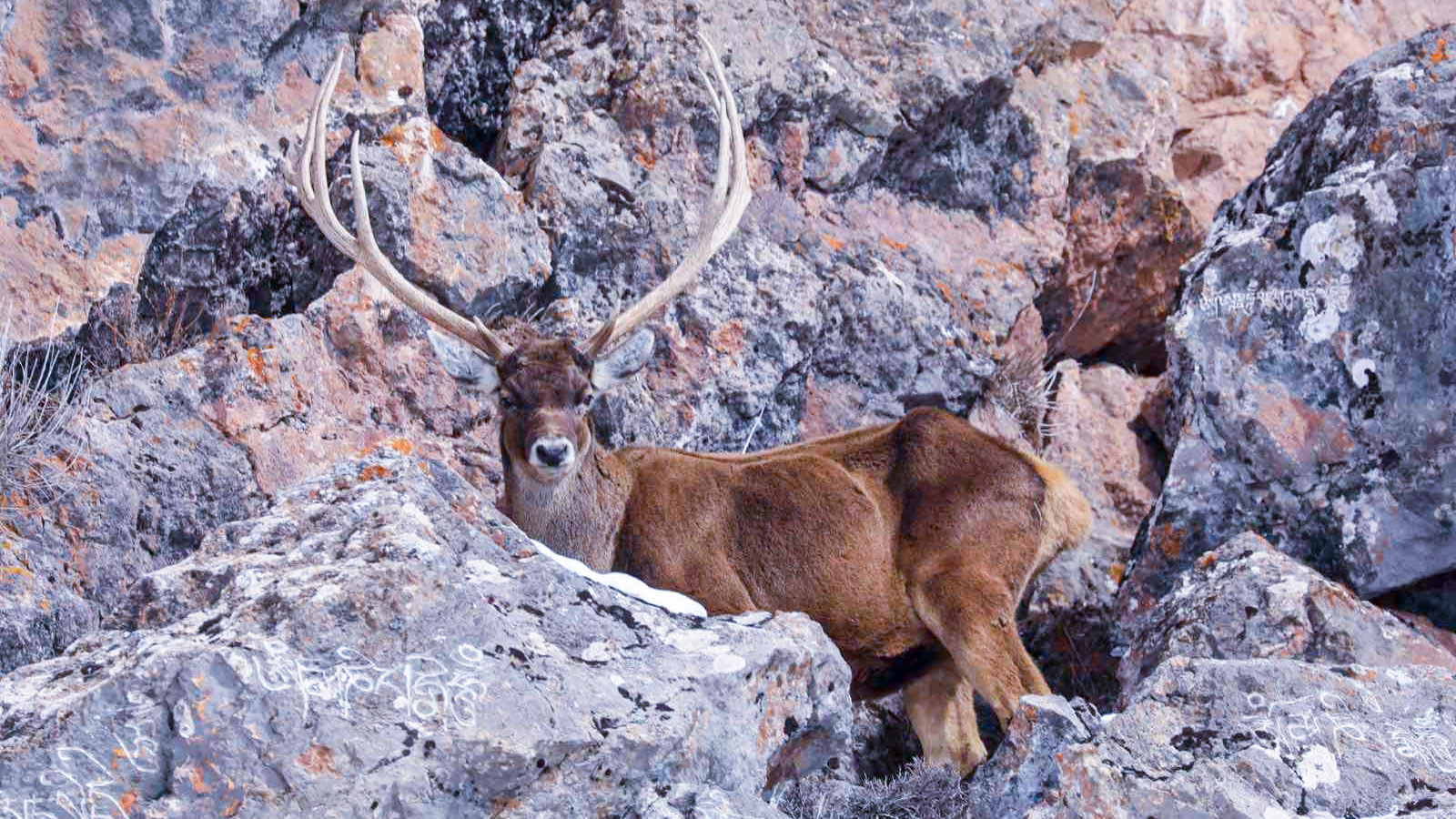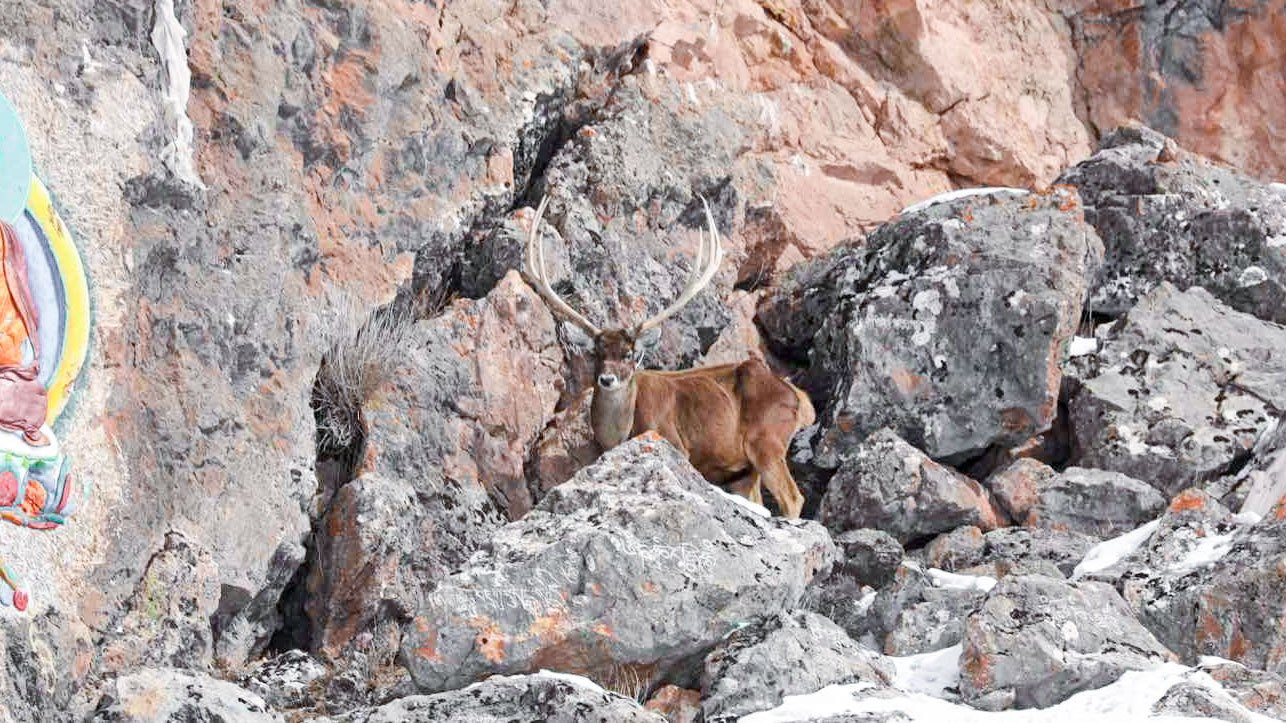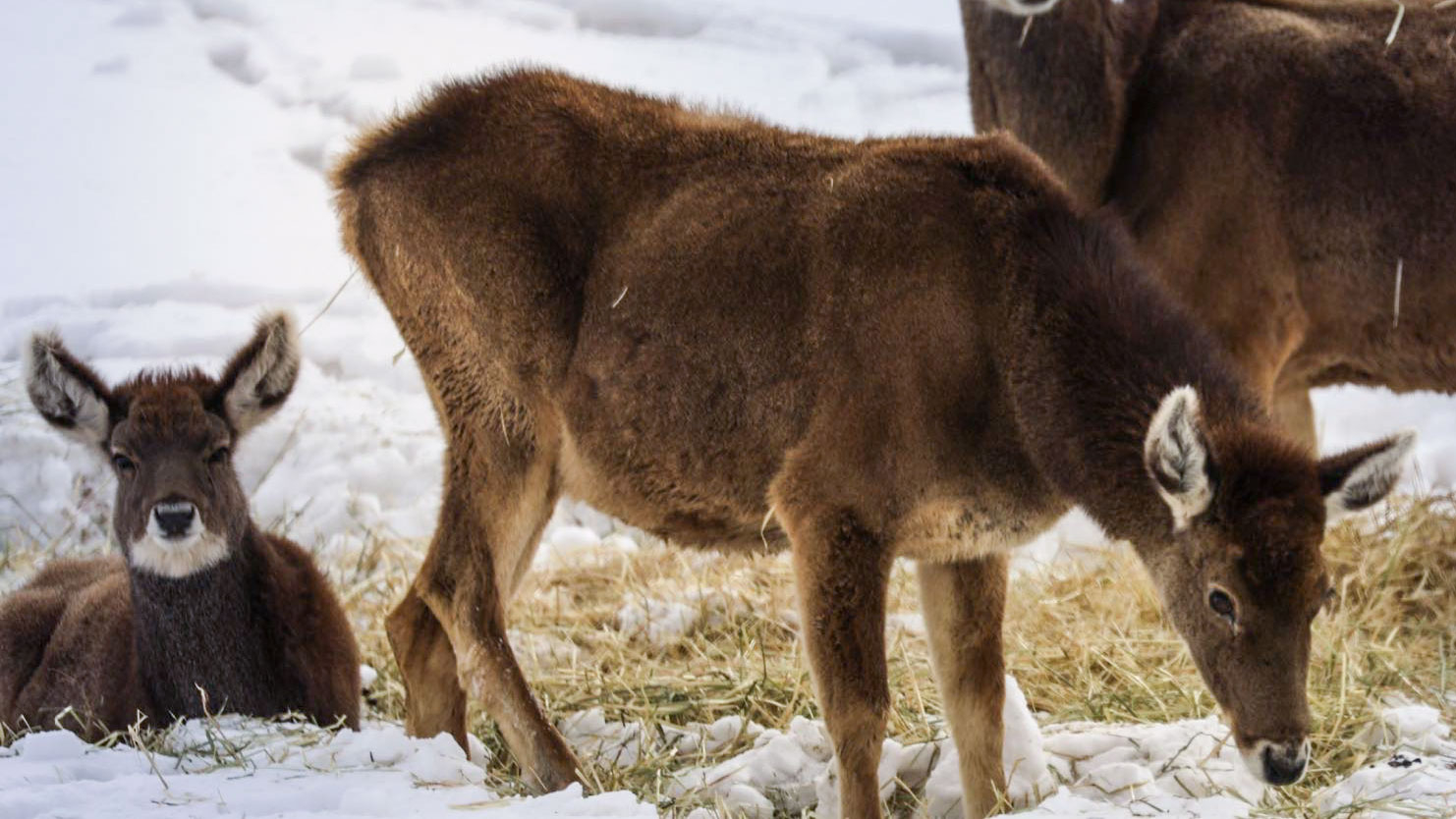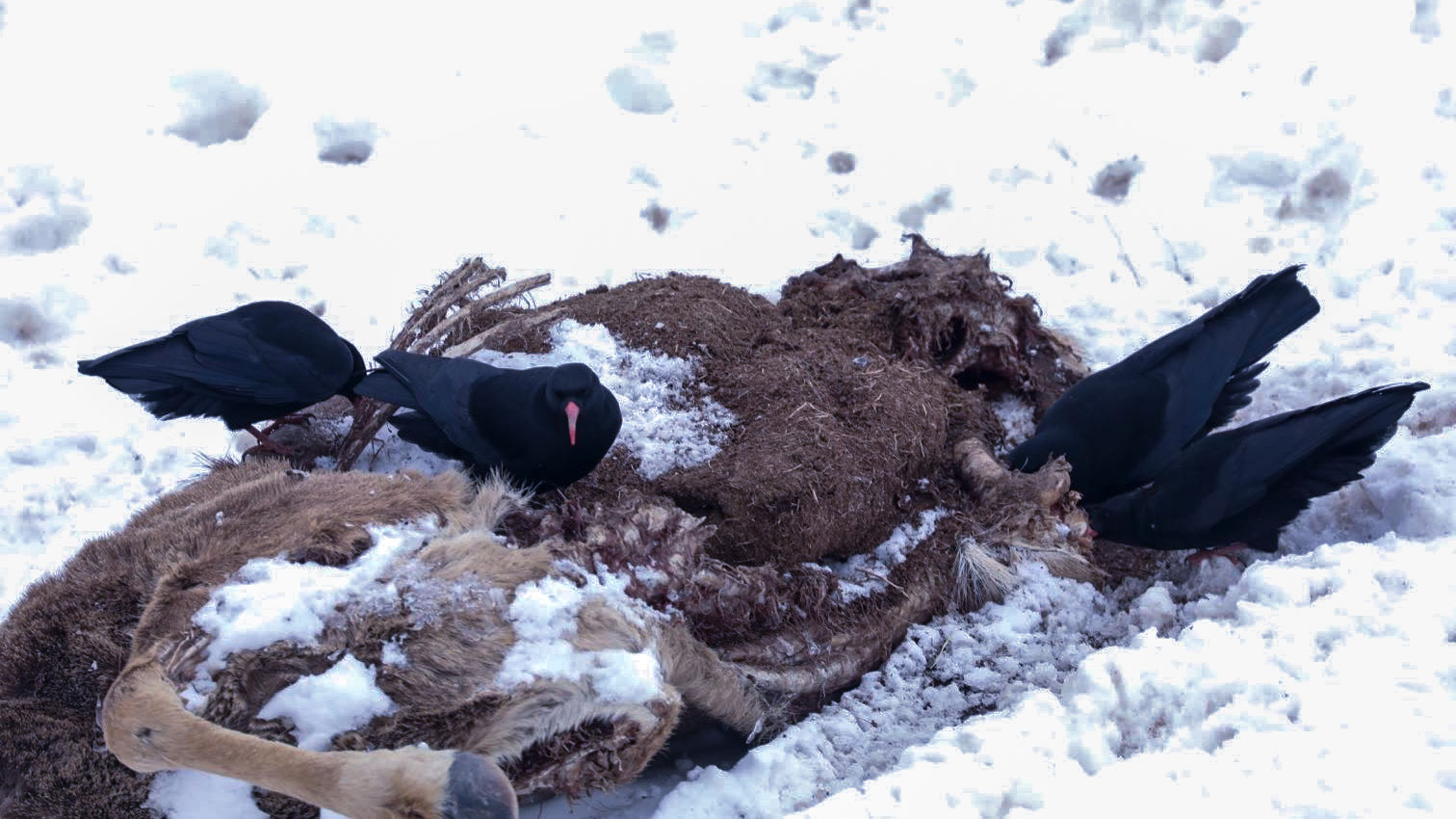
Animal
17:11, 10-Mar-2019
Wild animals not left behind despite massive snow
Updated
17:53, 10-Mar-2019
Zhang Hao, Xing Fangyu

Rescue workers have decided to let nature take its course when they found a white-lipped deer appeared to be too weak to run away even if human tried to approach.

A white-lipped deer is found standing among rocks in Qinghai Province, China. /Photo by Xing Fangyu
A white-lipped deer is found standing among rocks in Qinghai Province, China. /Photo by Xing Fangyu
Letting go of a wild animal in trouble is never an easy decision to make, let alone in the middle of a natural disaster. The white-lipped deer was discovered by a rescue team in Qinghai Province in northwest China on their way to scatter hay for the wild herbivores after continuous heavy snow hit the area and covered the grass.
Heavy snow started at the end of 2018. If no action were taken, a great number of wild animals feeding on grass would have died, or been pushed closer to the verge of dying. Some 300,000 yuan has been deployed by the local government to buy hay and distribute it for those starving animals, but freezing temperature, disrupted roads and staff shortage made it almost impossible to save each and every weak animal. Unfortunately, the white-lipped deer is one of the cases.

White-lipped deer eating grass. /Photo by Xing Fangyu
White-lipped deer eating grass. /Photo by Xing Fangyu
"Based on our experience, that deer will die in no more than two or three days," a rescue worker from Lancang River National Park in Qinghai Province told CGTN reporter. "Given the animal's famous vigilance, this one should have dashed away when human gets close, it must be too weak from starvation to run."
This snowstorm is considered the biggest in the past decade, and about 120 wild animals were found dead in the Lancang River source region alone. Every day five tons of hay are placed in 46 spots where animals are seen gathering often. Additionally, the rescue workers also try to engage more helping hands by encouraging local farmers to save any stressed animals if and when they encountered an animal.

Birds feeding on a dead animal in snow in Qinghai Province, China. /Photo by Xing Fangyu
Birds feeding on a dead animal in snow in Qinghai Province, China. /Photo by Xing Fangyu
Many acute issues need to be dealt with at the same time such as the prevention of possible epidemic disease and monitoring the illegal stealing of animal organs. Giving up on the animals is the least preferred of options.
"Making sure to scatter hay every day for those wild animals is the best we can do so far, any further intervene will cost extra resource which we are unable to afford under such messy circumstance. Let's just leave it to nature," said the rescue worker.
(Top photo by Xing Fangyu)
(If you want to contribute and have specific expertise, please contact us at nature@cgtn.com.)

SITEMAP
Copyright © 2018 CGTN. Beijing ICP prepared NO.16065310-3
Copyright © 2018 CGTN. Beijing ICP prepared NO.16065310-3